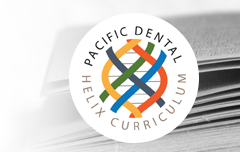Presentation Category
Community Oral Health
Introduction/Context/Diagnosis
In 2016, the Global Oral Health Initiatives Group created a competency-based curriculum for dental students that would cover global health initiatives. This Global Health starter kit has been successfully developed and implemented at Harvard School of Dental Medicine with an adjunct trip to Costa Rica. The intention of this project is to implement Global Health Initiatives into the University of the Pacific’s academic curriculum and give students the opportunity to apply their learnings to their various mission trips. Students will become proficient in these following initiatives: Global trends, Global goals, Basic Primary Care, Social Determinants and Risks, and ethics and sustainability. This course will engage students in global health and raise ethical discussions around mission trips and our role as dental providers in decreasing the global health disease burden.
Methods/Treatment Plan
To implement this program into our school curriculum various goals had to be met.
1) Fundamental learning material: The material was provided by the Global Health Starter Kit created by the Harvard School of Dental Medicine. The kit is comprised of 5 modules with additional learning opportunities for each module. The kit provided all the researched learning material with cited sources and expert opinion
2) Delivery system: For learning purposes at the University of the Pacific, each module and presentation was condensed and catered to the various mission trips. 5 classes were provided over the course of Summer Quarter; each class was 45 minutes to an hour long.
3) Classroom organization: This course was available to any student going on our offered mission trips (Jamaica, Philippines, Guatemala, Mexico). Every class had a learning section with an additional discussion section. Students were encouraged to discuss the implications of the learning material on oral health and the dental profession. The presentation and the discussion were student-led in order to facilitate more interest.
4) Experiential Portion: The experiential portion will be carried out at the respective mission trips. Students are given the choice of which module they want to focus on. The projects will be submitted with a short reflection on how choice related to the learning material. PIP projects will be jointly accepted for PIP credit and Global health credit.
5) Student Engagement: In order to increase student engagement an Award from the school was offered to demonstrate their proficiency and interest in matters of global health.
6) Measuring program results: Total amount of trip leader engagement and volunteer attendee engagement was measured by the attendance of the courses and amount of times students provided discussion during the class. Students were also surveyed at the end of the course to see which topics interested them the most, and which discussions
Results/Outcome
To be submitted later, topics will include
Student participation:
Student engagement:
Ideas presented:
Ideas Implemented:
Future Project proposals:
Student Feedback:
Significance/Conclusions
There were many purposes for the implementation of this program. At the most basic level, this program beta-tests a mandatory course for the following year. The course is designed to have heavy student feedback to increase student involvement and interest. It could serve as a framework for classes with similar topics such as community health and public health. This course also introduces important global initiatives to the students. The student engagement showed a push for what they wanted to learn on each trip and what would pique their interest in global health. Students found their own solutions to follow global trends and their own solutions to meet global initiatives. It was clear that students wanted to do the best for their communities but also reap the benefits of the mission trips.
The ethical implications of this course cannot be ignored. The discussion around this course raised questions in the volunteer minds but was able to encourage them to change their programs rather than remove themselves from the equation. The students were previously aware of the ethical considerations but felt that they were unable to find a delivery system to implement the change they wanted to. The results of this program at the highest level are that students were able to look at their own actions and the effect on the local communities. With clear expectations for what to learn, students could rise to higher applications. These higher applications included discussions, definite ways to improve their mission trips, and students found their ways to enact global health initiatives on their respective trips.
Upon completion of this beta-test, we will have more data on improving this course for the following year as well as the impact this had on students a year later.
Format
Event
Implementation of Global Health Initiatives into Academics and Global Volunteer Work
In 2016, the Global Oral Health Initiatives Group created a competency-based curriculum for dental students that would cover global health initiatives. This Global Health starter kit has been successfully developed and implemented at Harvard School of Dental Medicine with an adjunct trip to Costa Rica. The intention of this project is to implement Global Health Initiatives into the University of the Pacific’s academic curriculum and give students the opportunity to apply their learnings to their various mission trips. Students will become proficient in these following initiatives: Global trends, Global goals, Basic Primary Care, Social Determinants and Risks, and ethics and sustainability. This course will engage students in global health and raise ethical discussions around mission trips and our role as dental providers in decreasing the global health disease burden.




Comments/Acknowledgements
Toward Competency-Based Best Practices for Global Health in Dental Education: A Global Health Starter Kit. Edited by Seymour B., Cho J., and Barrow J. A project of the Consortium of Universities for Global Health Global Oral Health Interest Group; 2018. Available at: https://hsdm.harvard.edu/global-health-starter-kit